Supporting Cell Press journals
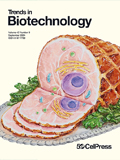
Trends in Biotechnology is a monthly journal that publishes innovative applications of biology as useful technologies. Our articles should describe biobased solutions to important problems and should emphasize how to engineer or adapt living systems for societal benefit. Specific application areas include human health and well-being, renewable energy, food and agriculture, natural resources, and production of bulk and fine chemicals.
A Trends in Biotechnology article should not merely summarize lab-scale research; it should think carefully about implementation, scale-up, and “real world” implications. A key consideration is how to translate or commercialize experimental applied biology to products, industrial platforms, therapies, or devices.
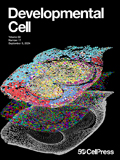
Developmental Cell, launched in 2001, is a broad-interest journal covering the areas of cell biology and developmental biology. In addition to publishing work spanning all areas of cell biology and developmental biology, we have particular interest in how these fields interface with each other and with other disciplines in biology. The journal aims to showcase work that examines, through a cell biological lens, the fundamentals of how a cell works, how cells interact with one another and with the environment, how cells come together to form a tissue, organ, and ultimately a whole organism, and what happens when any of these processes go awry.
Our PhD-trained scientific editors work with authors, reviewers, and editorial board members to publish 24 issues each year, filled with exciting research describing results of unusual significance. We also publish review and perspective articles tailored to the journal’s broad readership. With this wide coverage, Developmental Cell is a unique cross-disciplinary resource for researchers in cell biology and developmental biology and for the general scientific community.
Developmental Cell will consider papers in any area of cell biology or developmental biology, as well as at the interface either of these fields make to any other areas in biology. Examples of these include signaling, cell proliferation, polarity, cell migration, cell lineage and fate specification, chromatin regulation and function, cancer cell biology, evo-devo, disease etiology, membrane traffic, metabolic regulation, morphogenesis and biomechanics, organ development, ncRNAs, stem cell biology, and regeneration. We are also interested in studies building on large datasets or developing new tools that could be good fits for our Resource or Technology formats. The primary criterion for publication in Developmental Cell, as for all Cell Press journals, is new biological insight. We are happy to consider any study that leads to important new conclusions about biological function.
Access to all articles published in Developmental Cell is free from 12 months after publication.

Cell publishes findings of unusual significance in any area of experimental biology, including but not limited to cell biology, molecular biology, neuroscience, immunology, virology and microbiology, cancer, human genetics, systems biology, signaling, and disease mechanisms and therapeutics. The basic criterion for considering papers is whether the results provide significant conceptual advances into, or raise provocative questions and hypotheses regarding, an interesting and important biological question. In addition to primary research articles in four formats, Cell features review and opinion articles on recent research advances and issues of interest to its broad readership in the leading edge section.

One Earth, is Cell Press’ flagship sustainability journal. One Earth provides a home for high-quality research and perspectives that significantly advance our ability to better understand and address today’s sustainability challenges. We publish monthly thematic issues that aspire to break down barriers between the natural, social and applied sciences and the humanities, stimulate the cross-pollination of ideas, and encourage transformative research.
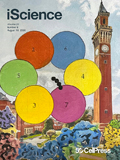
iScience is a peer-reviewed journal from Cell Press that provides a platform for original research in the life, physical, earth, social, and health sciences. We aim to fuel interdisciplinary thinking and consider research with significant contribution to a relevant field combined with robust results and underlying methodology. To support transparency in scientific investigation, we consider replication studies and papers describing negative results, provided they offer clear value to the research community. The advances appearing in iScience include both fundamental and applied investigations across this interdisciplinary range of topic areas. At iScience, our mission is to provide a fast-paced peer-review process with exceptional author service. With the strong international reputation of Cell Press behind it, publication in iScience will help your work garner the attention and recognition it merits.

Cell Genomics—a Cell Press gold open access journal–publishes cutting-edge, multi-disciplinary research at the intersection of genomics and the life sciences.
We offer a welcoming venue for authors and an indispensable resource for geneticists in all disciplines with research, datasets, and methods that has current utility and paves the way for the future.
We support authors throughout the publication process with an approach that includes editorial guidance, production expertise, and marketing outreach to ensure that the research we publish is seen by a broad, diverse community of researchers in all disciplines of genomics.
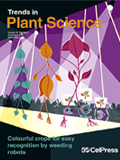
Trends in Plant Science is the original and leading monthly review journal in plant science, featuring broad coverage of basic plant science, from molecular biology through to ecology. Succinct and readable reviews and opinions on basic research topics provide instant overviews of current thinking and new developments in plant biology. Aimed at researchers, students and teachers, our articles are always authoritative, and are written by both leaders in the field and rising stars.

Cell Reports Sustainability, a gold open access journal from Cell Press, publishes high-quality research and discussion that contribute to understanding and responding to environmental, social-ecological, technological, and energy- and health-related challenges. In doing so, the journal will provide a new home for accessible cross-disciplinary and collaborative research.

Cell Reports Methods is an open access, multidisciplinary journal from Cell Press publishing significant methodological advances of broad interest. The primary criterion for publication in Cell Reports Methods is a robust, reproducible method that will spur scientific progress. We will also consider papers presenting a new tool or set of reagents that will be of significant utility and interest to the community. Cell Reports Methods publishes shorter, single-point stories, called Reports, in addition to a longer Article format. Areas of interest include innovations in sequencing and imaging technologies, genome editing, single-molecule approaches, computational methods, biotechnology, and synthetic biology.

Current Biology is a general journal that publishes original research across all areas of biology together with an extensive and varied set of editorial sections. A primary aim of the journal is to foster communication across fields of biology, both by publishing important findings of general interest from diverse fields and through highly accessible editorial articles that explicitly aim to inform non-specialists.
Current Biology publishes papers reporting findings in any area of biology that have sufficient claim to be of general interest—this could be, for example, because the advance is important for a specific field, or because it is intrinsically of wide interest to biologists generally. We have several formats for publishing original research (articles, reports, and correspondences); see our article types page for details.

The Cell Reports Portfolio includes gold open-access journals that span life, medical, and physical sciences. Its mission is to make cutting-edge research and methodologies across disciplines available to a wide readership.
Cell Reports publishes high-quality research across the life sciences. The primary criterion for publication in Cell Reports is new biological insight. We have three primary article types. Reports are shorter, single-point articles; research articles are the longer format for work with deeper mechanistic insight; and resources highlight significant technical advances or major informational datasets that are used to show a biological advance. Reviews covering recent literature in emerging and active fields are also welcome.
The professional in-house editors of Cell Reports work closely with authors, reviewers, and the journal's scientific advisory board.
The advisory board comprises current and future leaders in their
respective fields who guide the journal’s scope, content, and quality.
However, editorial decisions at Cell Reports are made independently by its in-house scientific editors.

Device, a sister journal to Cell, is a monthly journal encompassing the applied research needed to make groundbreaking fundamental research into tomorrow’s cutting-edge technology. The disciplines and expertise needed to build devices that positively impact human lives are diverse, and as such, Device publishes research in applied physics, computer science, chemistry, biology, engineering, and more as it applies to driving integrated, purpose-driven applications.
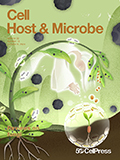
Cell Host & Microbe was launched in March 2007. The journal's mission is to provide a forum for the exchange of ideas and concepts between scientists studying the microbe with those studying the host immune, cell biological, and molecular response upon colonization or infection by a microbe.
Cell Host & Microbe will publish novel findings related to microbes (which includes bacteria, fungi, parasites, and viruses) from molecular and cellular biology to translational studies with particular emphasis on the interface between the microbe and its host (vertebrate, invertebrate, or plant; unicellular or multicellular). The unifying theme is the integrated study of microbes (pathogenic, non-pathogenic, and commensal) in conjunction and communication with each other, their host, and the cellular environment they inhabit. Work published in Cell Host & Microbe is expected not only to be of exceptional significance within its field, but also of interest to researchers outside the immediate area. In addition to primary research manuscripts, Cell Host & Microbe will publish expert analysis, commentary, and reviews on topics of current interest in the field.
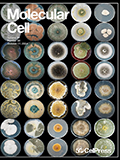
Molecular Cell aims to publish the best research in molecular biology. The journal covers core cellular processes, including:
- DNA replication, recombination, and repair
- Chromatin biology and genome organization
- Transcription
- RNA processing and decay
- Non-coding RNA function
- Translation
- Protein folding, modification, and quality control
- Signal transduction pathways
- Cell cycle and checkpoints
- Cell death
- Autophagy
- Metabolism
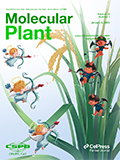
Molecular Plant is dedicated to serving the plant science community by publishing novel and exciting findings with high significance in plant biology. The journal focuses broadly on cellular biology, physiology, biochemistry, molecular biology, genetics, development, plant-microbe interaction, genomics, bioinformatics, and molecular evolution.
Molecular Plant publishes original research articles, reviews, Correspondence, and Spotlights on the most important developments in plant biology. Please see our information for authors for details. Other categories of papers, such as perspectives and meeting reports, can also be considered.
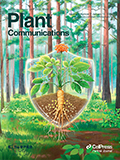
Plant Communications is dedicated to serving the global plant science community by providing a high-quality open access publishing platform. Plant Communications publishes original research results addressing either fundamental or applied aspects of plant sciences, important technical advances, highly useful research resources, and outstanding review articles in all areas of plant sciences, including, but not limited to, the evolution, ecology, physiology, biochemistry, development, reproduction, metabolism, molecular and cellular biology, genetics, genomics, environmental interactions, biotechnology, and breeding of both higher and lower plants, as well as their interactions with other organisms throughout the biosphere.